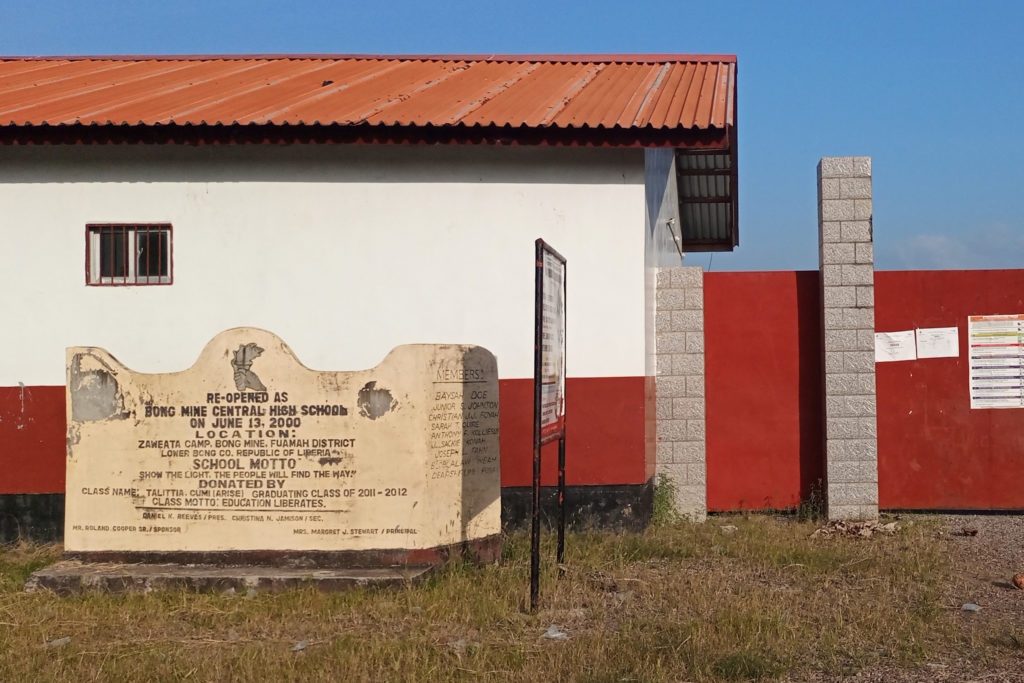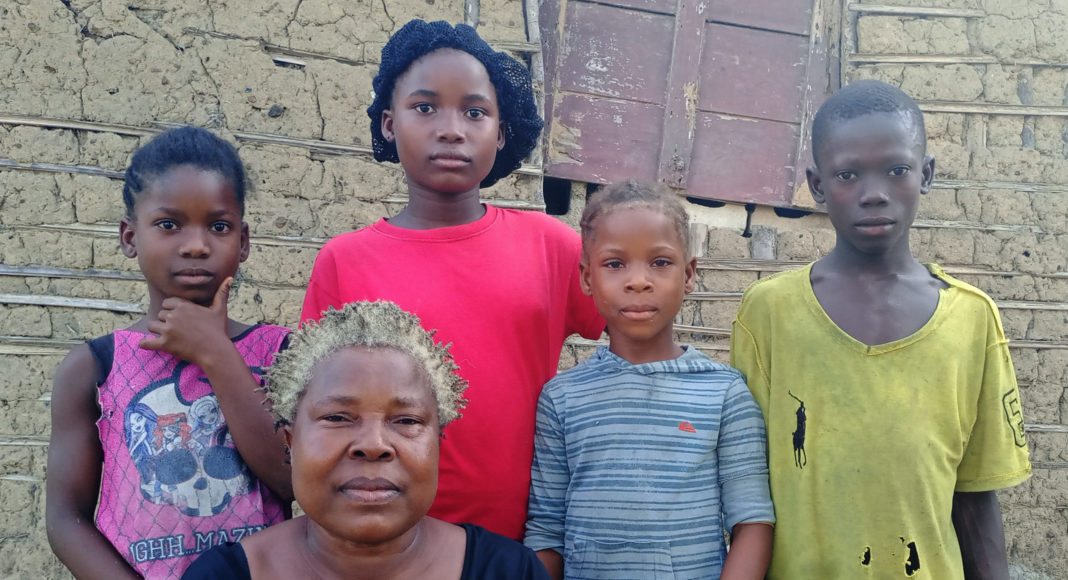By Varney Kamara
BONG MINES, Liberia – Fatu Flomo, 53, is a farmer and a mother of four children and three grandchildren. Victoria, Flomo’s youngest child, and Kemah, Samuel, and Lina, her three grandchildren, attend the Bong Central High School. The school closed at the beginning of the Covid-19 outbreak in the country, and even though the school will open back up on Monday, her grandchildren aren’t likely to return to normal academic activity anytime soon.
In 2016, Flomo and her husband Kolubah Flomo, who worked for the Firestone rubber company, settled in Cephas Town, Bong Mines, an old iron-ore mining town renowned for its once-booming lifestyle during pre-war years. Prior to the pandemic, Flomo earned LD10,400 ($50) per month harvesting rice and selling charcoal, which she used to support her children and grandchildren’s education and feed the family.
The harsh economic impact of the government’s Covid-19 lockdown has slashed Flomo’s monthly salary to LD 2500 ($16), which is not enough to cover tuition and registration requirements.
The Flomo children’s education now hangs in the balance, like much of the nation’s students. Prolonged school closures have impacted at least 1.4 million school-going children in Liberia, according UNICEF. Although some schools have reopened, the number of students out of school is likely to grow because the spending power of most parents has significantly dropped, experts warned. Nearly all African countries have practicing country-wide school closures at some point during the pandemic, putting millions out of school.
Liberia’s early preventive measures and its experience in handling the Ebola virus epidemic has kept coronavirus’s worst effects at bay. So far only 1,800 people have been infected, and the virus has killed 88 people in ten months, according to public health officials. By contrast, there are 1,800 new infections every 15 minutes and 109 people killed every hour in the U.S., the worst hit country in the world.
While the health impact in Liberia is relatively low, the secondary and tertiary impacts have been devastating. The nation of 4.5 million people started to feel much of the disease’s impacts after the government announced new health protocols including school closures, travel restrictions, and bans on mass public gatherings. Though many secondary schools have reopened, most primary schools are still closed. Previous experiences in the country, which emerged from a civil war in 2003, have shown that the longer children are out of school, the less likely they are to return.
Flomo needs LD 15,000 ($93) to pay her children and grandchildren’s school fees for the semester but has no idea how to generate this money. The last ten months have left her and her grandchildren increasingly vulnerable to the aftershocks of the pandemic. “I am seriously hurt because my grandchildren’s future is in danger here. My heart is broken,” Flomo lamented. “The government and international community must step in,” she said.
Felecia Doe Somah, deputy education minister with oversight in early childhood education, said in an interview with Sahelien.com that student enrollment at public and private schools has been extremely low for the 2020/2021 academic year. She hoped the country’s economy would improve in order to change the trajectory.
“Most parents are complaining about economic hardship in the country,” she said. “They are disenchanted about the prolonged closure of schools, but they are even more furious because they do not have money to register their kids for the coming semester.”
The Covid-19 outbreak has left the government and partners struggling to determine how best to get children back in the classrooms. Early suggestions about the introduction of online distance learning program were quickly rebuffed due to budget shortfalls and competing development priorities. “Most parents cannot afford to buy laptops and smart phones to teach the kids online and as such, introducing the online distance learning program would not have been the most suitable intervention at this time,” Deputy Minister Somah explained.
Instead, authorities at the Ministry of Education have decided to introduce a special learning radio program that will teach Liberian syllabi prepared from the country’s school curriculum. The special learning radio program is expected to launch on January 11.
As the government hastens to restart early childhood education, concerns have been mounting about schools’ level of health preparations. Parents and school administrators are particularly concerned about whether the government is telling the truth about the health regulations aimed at safeguarding the children against the virus it said it’s implementing when school commences.
“We’ve also instructed district educational officers to ensure that school administrators put in place Ministry of Education’s prescribed health regulations, which include distribution of washing hand buckets, soap, and sanitizers across various campuses,” Deputy Minister Somah assured, though her assurances have received contrasting views.

Paye Ben Nukolo, principal of Bong Central High School in Bong Mines, said that most schools have not put in place effective prevention measures to stop the spread of Covid-19. “On the issue of schools’ reopening, I don’t think we are actually prepared for that because up to now, we have not received instructional materials, including hand washing buckets and detergents for the students to use on campus.”
Still, Nukolo believes schools should reopen. “I think parents are right about the current economic hardship. To date, we have only 20 students registered in the school. This is a serious problem here,” Nukolo said. “I would rather parents taking the risk for their kids to return to school because, no one knows when the virus would go away and as such, we cannot keep our children out of school perpetually. Were we to allow this, we would be heading for serious danger,” he suggested.
Nukolo’s comments reflect the herculean task the government faces as it tries to balance public health and rescue the education sector while faced with regular budget cuts and an economic crisis. Many teachers and administrators say the government must do more, though.
The government “cannot ignore the economic hardship parents are facing. If the economy is good, parents would generate handsome incomes to pay tuition on time. The government cannot also allow thousands of children to sit because there’s no money. That would undermine its agenda of free education vis-à-vis ending illiteracy. It must solve this quagmire,” said Harris Ndebe, former Vice Principal for Administration at the Kolahun Public High School in Liberia’s northern Lofa County.
Ndebe, a veteran classroom teacher, suggested that the government should provide quick impact loans to poor rural women on a rotational basis in order to reduce their financial burden.
As education officials look for a lasting solution, millions of parents and their school-going children have become direct victims of a global health emergency that broken down some of the most powerful economies of the world.
“This is a heavy load on my head,” Flomo said.“I am having sleepless days and nights nowadays because school is about to reopen and my kids have no chance of sitting in class.”


